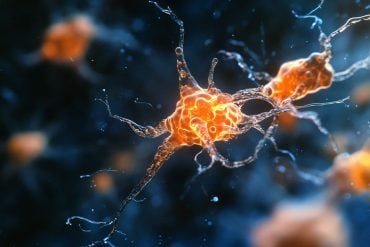Summary: Researchers propose forgetting memories or things we have learned may be a functional feature in the brain and actually an additional form of learning.
Source: TCD
We create countless memories as we live our lives but many of these we forget. Why? Counter to the general assumption that memories simply decay with time, ‘forgetting’ might not be a bad thing – that is according to scientists who believe it may represent a form of learning.
The scientists behind the new theory – outlined today in leading international journal Nature Reviews Neuroscience – suggest that changes in our ability to access specific memories are based on environmental feedback and predictability. Rather than being a bug, forgetting may be a functional feature of the brain, allowing it to interact dynamically with the environment.
In a changing world like the one we and many other organisms live in, forgetting some memories can be beneficial as this can lead to more flexible behaviour and better decision-making. If memories were gained in circumstances that are not wholly relevant to the current environment, forgetting them can be a positive change that improves our wellbeing.
So, in effect, the scientists believe we learn to forget some memories while retaining others that are important. Forgetting of course comes at the cost of lost information, but a growing body of research indicates that, at least in some cases, forgetting is due to altered memory access rather than memory loss.
The new theory has been proposed by Dr Tomás Ryan, Associate Professor in the School of Biochemistry and Immunology and the Trinity College Institute of Neuroscience at Trinity College Dublin, and Dr Paul Frankland, Professor in the Department of Psychology at the University of Toronto and the Hospital for Sick Children in Toronto.
Both Dr Ryan and Dr Frankland are fellows of the Canadian global research organization CIFAR, which enabled this collaboration through its Child & Brain Development program, which is pursuing interdisciplinary work in this area.
Dr Ryan, whose research team is based in the Trinity Biomedical Sciences Institute (TBSI), said:
“Memories are stored in ensembles of neurons called ‘engram cells’ and successful recall of these memories involves the reactivation of these ensembles. The logical extension of this is that forgetting occurs when engram cells cannot be reactivated. The memories themselves are still there, but if the specific ensembles cannot be activated they can’t be recalled. It’s as if the memories are stored in a safe but you can’t remember the code to unlock it.
“Our new theory proposes that forgetting is due to circuit remodelling that switches engram cells from an accessible to an inaccessible state. Because the rate of forgetting is impacted by environmental conditions, we propose that forgetting is actually a form of learning that alters memory accessibility in line with the environment and how predictable it is.”
Dr Frankland added:
“There are multiple ways in which our brains forget, but all of them act to make the engram – the physical embodiment of a memory – harder to access.”
Speaking to the case of pathological forgetting in disease, Dr Ryan and Dr Frankland note:
“Importantly, we believe that this ‘natural forgetting’ is reversible in certain circumstances, and that in disease states – such as in people living with Alzheimer’s disease for example – these natural forgetting mechanisms are hijacked, which results in greatly reduced engram cell accessibility and pathological memory loss.”
About this memory research news
Author: Thomas Deane
Source: TCD
Contact: Thomas Deane – TCD
Image: The image is credited to Dr Nora Raschle.
Original Research: Closed access.
“Forgetting as a form of adaptive engram cell plasticity” by Tomás Ryan et al. Nature Reviews Neuroscience
Abstract
Forgetting as a form of adaptive engram cell plasticity
One leading hypothesis suggests that memories are stored in ensembles of neurons (or ‘engram cells’) and that successful recall involves reactivation of these ensembles. A logical extension of this idea is that forgetting occurs when engram cells cannot be reactivated. Forms of ‘natural forgetting’ vary considerably in terms of their underlying mechanisms, time course and reversibility.
However, we suggest that all forms of forgetting involve circuit remodelling that switches engram cells from an accessible state (where they can be reactivated by natural recall cues) to an inaccessible state (where they cannot). In many cases, forgetting rates are modulated by environmental conditions and we therefore propose that forgetting is a form of neuroplasticity that alters engram cell accessibility in a manner that is sensitive to mismatches between expectations and the environment.
Moreover, we hypothesize that disease states associated with forgetting may hijack natural forgetting mechanisms, resulting in reduced engram cell accessibility and memory loss.







